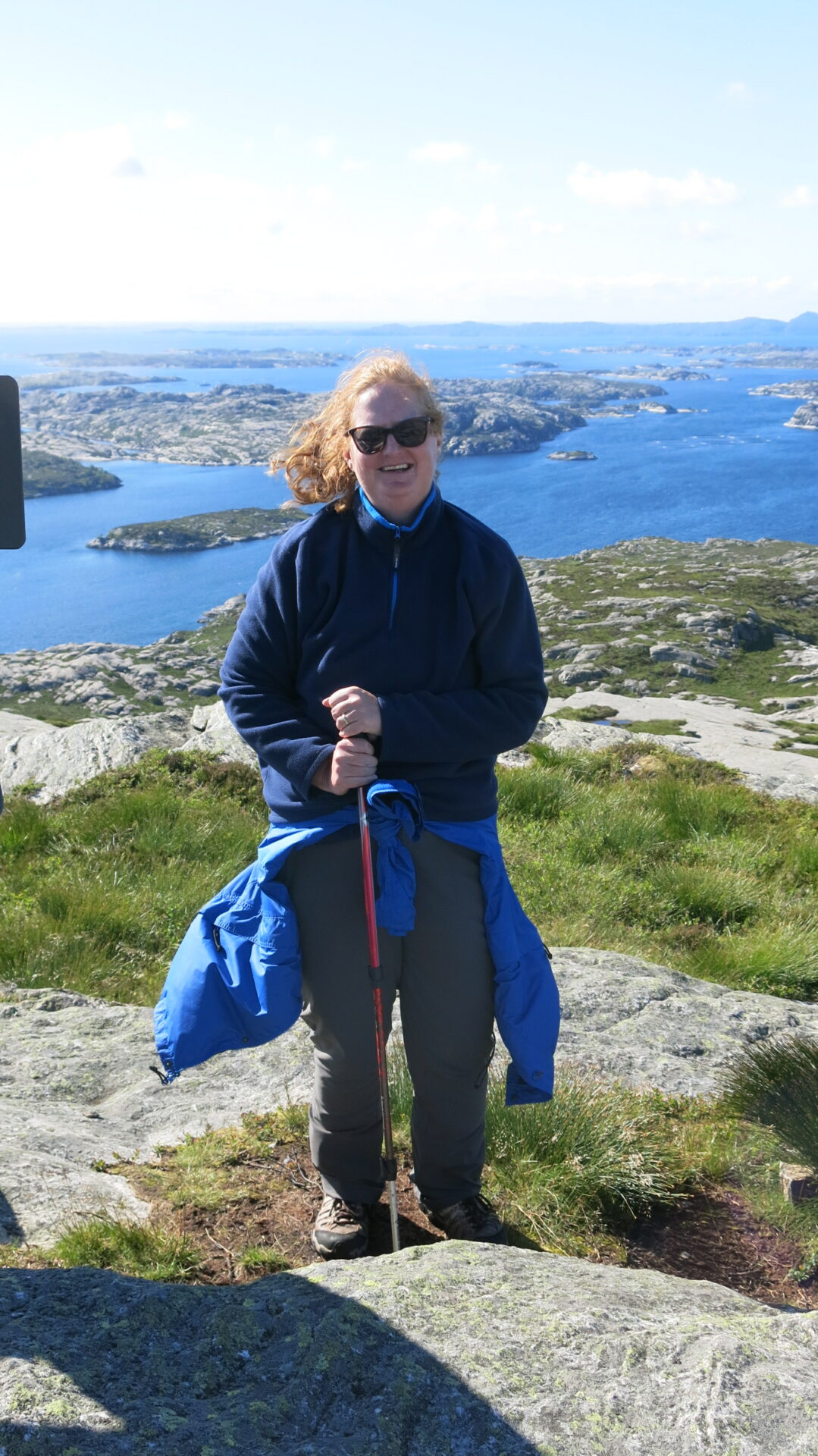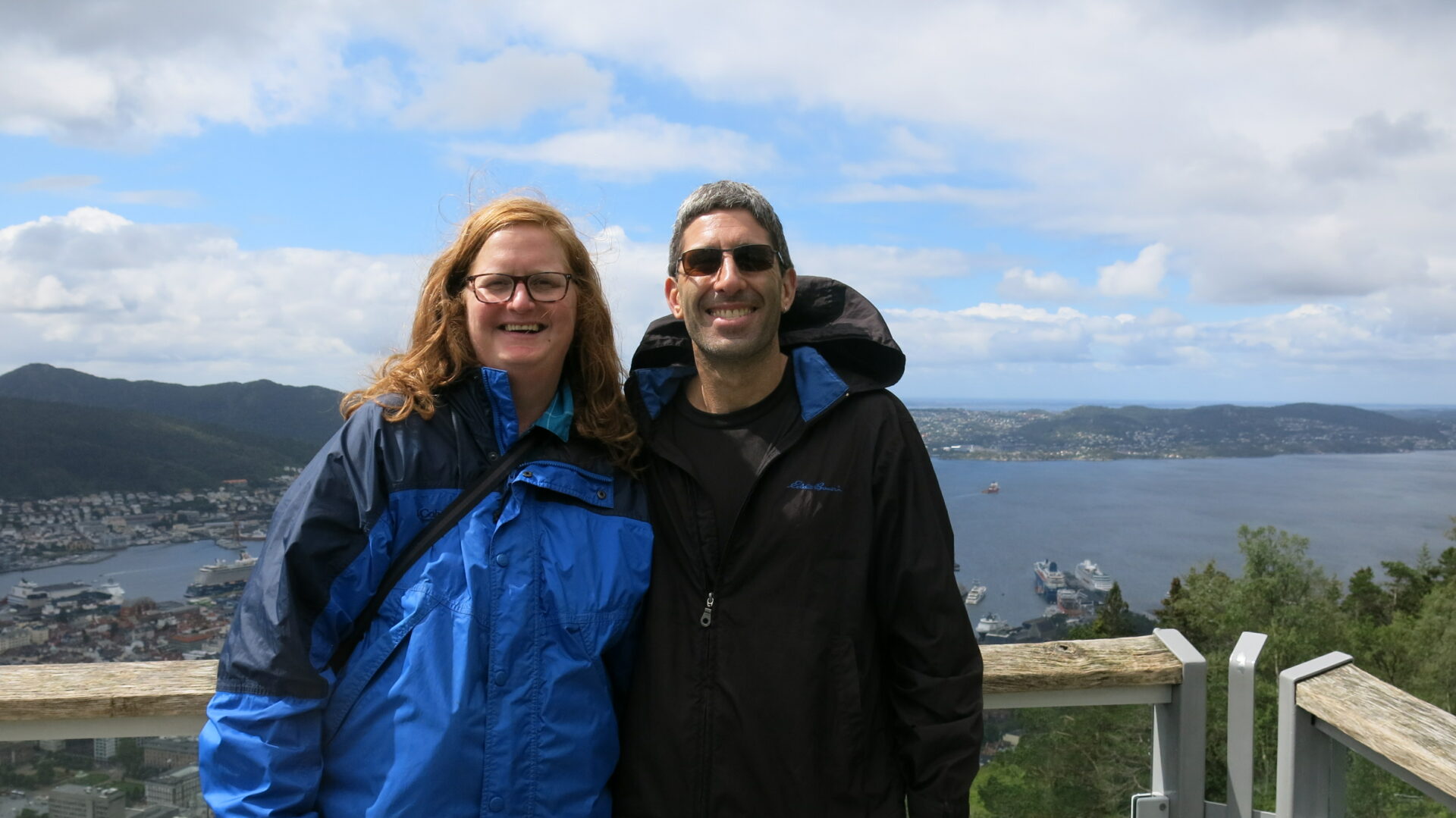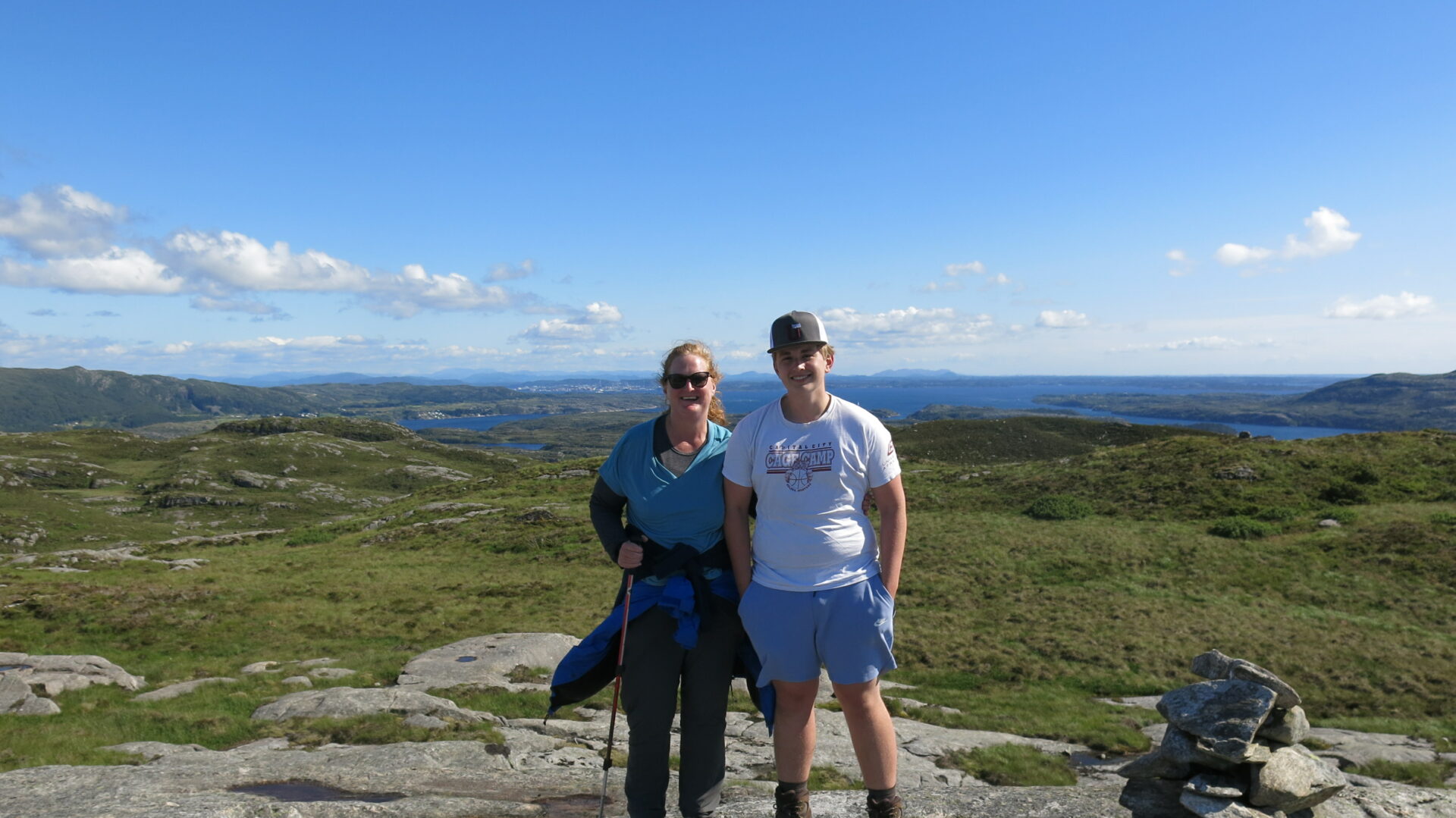I had the good fortune this past summer to travel to Norway. Even more special than being in this gorgeous place was how healthy I felt on this trip. I was able to take walks with my husband, Jay, and our 15-year old son, Andrew, and paddle a kayak under the midnight sun in clear Arctic water. I felt a sharp gratitude with every step I took. Walking and kayaking have not been usual activities for me in the fifteen plus years I’ve been living with sarcoidosis. I’ve spent far more months as an inpatient in the hospital than on vacations.
Even with my many health limitations, travel has become an essential part of how my family and I survive chronic illness. As I’m sure everyone with sarcoidosis and everyone who loves someone with sarcoidosis knows, being sick can literally take over your life. It sometimes seems like we spend every minute of every day managing our disease, and this is during “normal” times. A flare-up can send us to the emergency room or into the hospitals for days, weeks, or months.
One of greatest challenges of living with sarcoidosis is getting my mind and spirit not to focus on illness. I find myself caught in deep ruts where all my thoughts and mental energy dwell on the disease. It’s not some kind of character flaw. Dealing with illness and chronic pain inevitably make me think about these things. Knowing that sarcoidosis is in my heart, brain, bones, lungs, lymph nodes, digestive tract, and skin keeps me hyper-focused on any changes to these vital organs. And when I am stuck in the hospital for months-long stretches (usually with a neurosarcoidosis flare-up) it feels impossible to be anyone other than a full-time patient.
Still, my family and I keep dreaming of places we’d like to see, making plans, and hoping for the best. We’ve probably canceled more trips than we’ve been able to go on. Jay and I were avid travelers before we had Andrew—and then three months after he was born, I got diagnosed with sarcoidosis. It’s important for us that Andrew see other people and places, to have a sense of just how big and diverse our country and world are. So I have pushed myself to take trips when my health is not its best. We went to Costa Rica a few years ago when I was getting regular chemotherapy infusions in hopes of stemming the neurosarcoidosis. This meant that I spent time resting while Jay and Andrew went off exploring. Nevertheless, I was able to get out some (and got a lot of stares since the chemo made me bald). On another trip to China, I was mostly confined to a wheelchair because sarcoidosis was weakening my bones and walking was painful. I again wasn’t able to participate as fully in the trip as I would have liked, but I was there with my family and was grateful for how kind people in Beijing were, helping me get around in a wheelchair. Even just lying in a different bed in a different place felt liberating and exotic.

Some of my extended family and friends don’t understand why I push myself physically and assume risks to travel. Wouldn’t it be better to stay at home and conserve my energy? Why chance catching some bug on an airplane in my immune-compromised state? I try to explain that our trips aren’t about checking locations off my bucket list or racking up airline miles. They’re a way of making me a full participant in my non-illness life and reconnecting with Jay and Andrew. Getting away from home also forces me to break patterns I’ve developed. In another city or country, I have no choice but to let go of medical routines. For however long I am gone, I am blessedly able to step outside my identity as a sarcoidosis patient and instead be an adventurous soul. But sometimes this is really hard. I worry in advance about what will happen if I have a flare-up when I’m gone. Jay and I make plans for all the contingencies we can think of, and then together we take this leap of faith into a different way of life. Instead of scheduling my next neurology appointment or wondering just how crappy I’ll feel after my next round of Rituxan or Cytoxan, I help my husband navigate to our hotel, find a place for dinner, and save up energy to walk on new streets. I can’t describe how exhilarating this is.

What makes travel especially important for me, though, is the effect it has on my relationships with Jay and Andrew. My “boys” are wonderful human beings. They support me through downturns. They spend time with me in the hospital. They accompany me to doctors’ appointments and hold my hand during infusions. But, like me, they get into ruts. Sometimes, they start to look at me more as a patient, whose many needs must be managed, rather than as a wife and a mom. This isn’t malicious – it makes complete sense. My hospitalizations have been long and many. I’ve been stuck in a hospital for my birthday, my son’s thirteenth birthday, my husband’s birthday, our wedding anniversary, Thanksgiving, and Christmas. It’s hard to just shake off a hospital stay and come home and pick up a “normal” life again. But when we’re “on the road,” we find ourselves having new conversations in new places, laughing about the mistakes we’re making. We rediscover a common language not related to illness.


Travel’s gift is in lifting me out of routines and pushing me to participate more fully in my own life and my family’s life. I’ve been sick with sarcoidosis long enough to understand that I most likely will have more days ahead when I won’t be able to venture far beyond my bed. When I close my eyes, I dream of the places I want to see with Jay and Andrew—the mountains of Patagonia, Italian villages, the desert sands of North Africa. If there’s one lesson I’ve learned from my years with sarcoidosis, it’s that dreams sometimes stay dreams. If so, I will have the craggy glaciers and the shifting sands to hold close in my mind’s eye. But I’ve also learned that sometimes, with a little luck and perseverance, I will—unbelievably—find myself gliding through the Arctic sea in a kayak. I will be in my life and of my life. Either way, the world sustains me.



